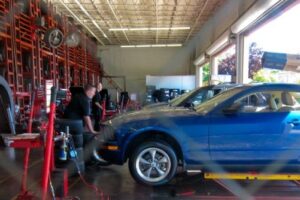When it comes to selling cars. From the buyer that drives away in a new car with the dealer making very little or no profit to the customer that allows the dealership to make several thousand dollars on their purchase. The reason for the difference in the two extremes is the customer and what they know. Most people believe that the seller controls the deal and the amount of profit, but in fact, it’s the buyer. That’s why you would be wise to prepare before you make a trip to the showroom and be armed with what you should know before you buy a car from a dealer.
Purchasing an automobile today is very different than almost every other transaction because the buyer has control. Many people may disagree with that statement, but it is true. A large part of the population believes that the dealership has control of the car buying process and that they are lead through the purchase process, but that is because they don’t know any better. The old saying sums it up quite well “Knowledge is Power” and it applies to buying a car as it does to so many other things.

Table of Contents
Before Buying a Car You Should Know
1. Vehicle Selection
All vehicles are not created equal. There is a wealth of information available at your fingertips today on the Internet. Before you set your sights on a vehicle based on a TV commercial or some other form of advertisement you should do some research. Before you go to the dealer’s showroom to buy a car, you can discover the cost of ownership, reliability ratings, current owner’s feedback, and not only the price of the vehicle, but the amount of the dealer’s invoice. The invoice amount or lower should your target purchase price.
The last thing you want to do is find out that you bought one of the lowest-rated vehicles on the market after you drive it home and end up with car buyer’s remorse. A good car salesman will direct the unprepared buyer to a vehicle they want you to buy rather than the one that is best for you. The salesperson is motivated and compensated by the amount of profit that the sale produces not whether you are happy and satisfied with your new car. This information alone can help you avoid spending more than you need to spend when you go to the dealership. The salesman is trained to use your emotions to make a purchase rather than your logic which is the quickest way to overpaying.
2. Trade-In Appraisal
Everyone jokes about the dealer getting in your pocket when it comes to trading in your old car, but it doesn’t have to be that way. When you plan on trading your old vehicle the market value is one of the things you should know before you buy a car from a dealership. Like I mentioned earlier there is a huge amount of information that will help you determine the value of your old car on the Internet. Knowing the value of your trade is imperative because the used car manager will always propose an amount much lower than the actual worth of your car and then slowly increase their offer, based on what you know and the research you have done. Many people will accept the first offer of the used car manager for their trade-in rather than debate its true worth.
3. Vehicle Financing
Financing at the dealership where you purchase your vehicle is the standard practice with most buyers, but you should know that the car dealer can reap a huge percent of their profits from your financing. What you should know before you buy a car from a dealer about financing is the available manufacturer incentives if applicable and your credit score. If there are special rates available through the car maker’s financing arm they are often a great deal, but if you are buying a used car or a new vehicle that doesn’t have incentives you need to know what is available to you through other lenders. It’s not uncommon for the dealer to mark-up your interest rate a couple of percentage points to make a profit by telling you what you qualify for, based on your credit score. Know what is available to you through other lenders allows you to negotiate the terms and rates which alone can save you hundreds or thousands of dollars.
4. Finalizing the Deal and Paperwork
Once you have come to an agreement with your salesperson, the next step in the process is sitting down with the finance manager and completing your contracts and paperwork. The first thing the finance manager says is congratulations you bought a new car and the hard part is over so you can relax. That statement is made to get you to let your guard down and be more receptive to offerings that will be presented to you during the completion of the paperwork. Before you sign and buy a car from the dealer you should know that the finance office is another area of the transaction where big profits can be made. You will be offered and sold various products that include extended car warranties, service contracts, life insurance, tire warranties, and other products that can yield a very high margin for the dealer. You should know that you can negotiate all of these products if there is something that interests you. The dealer would rather sell you a product or service at a low margin than not at all. Many people accept the first price they are offered because they don’t know that these offerings can be had for a much lower price.




